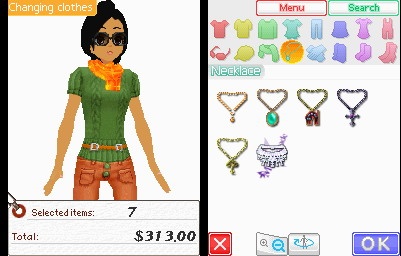Back in February, Mattie wrote about Anders, and how Hawke is in a position of privilege in the game, the same way most players are in a position of privilege with regard to the LGBT community. It is a great piece that really got me thinking. There was an idea I saw popping up all over the place back when Dragon Age 2 first came out that said that DA2 missed a huge opportunity with Mage!Hawke, that playing as a mage should have been significantly different from Warrior or Rogue in that the mage should have had to go through what all the other mages in Kirkwall go through. The whole abducted from your family, imprisoned in the Gallows, under the constant scrutiny of the Templars, who will make you Tranquil if you step one toe out of line, or even for no reason at all. I actually think that, for the purposes of DA2 specifically, the team at BioWare did exactly the right thing by giving Hawke the Thedas equivalent of “passing privilege” as a mage, first via bribery and later via her wealth and finally her title of Champion.
There are two reasons for this. The first is that games do have a very strong ability to put players temporarily inside the experience of another person. A while ago, I wrote about a hypothetical game that would allow a male player to allegorically experience–and therefore better understand–rape culture. Games are essentially systems, and oppression is a system, so it’s completely possible to create a game that communicates what it’s like to experience oppression. The problem is, while both games and oppression have rules, the rules of oppression are rigged so that the “player” can never win. This means it’s not very fun at all (to put it mildly). A game where a player is put in the shoes of a marginalized person–such as a mage in Thedas–isn’t going to be any fun. Who wants to play being stuck in a tower, or even confined to one small room, for weeks or months on end? Who wants to play a game where your character can be lobotomized randomly and without reason?
Well, I do. But this game will never, ever be made by a company that’s in the business of entertainment, that wants to make money.
So, what if the player just got a taste of it? What if they had to disguise themselves, tiptoe around Templars, make sure they don’t use magic in battle inside the city, at least in the first two acts, before Hawke becomes Champion?
I believe this strategy would backfire. The player gets a taste of what mages like Anders experience and most would think, this isn’t so bad! It’s annoying, but not worth blowing up a building over! It’s like when games or shows depict sexism as being the domain of openly-hateful old men who just need their butt kicked by and/or a sassy remark from the spunky heroine. At least when Hawke gets a pass that other mages don’t, the player is aware that they have it better than other mages. There’s no way to get most players to truly experience and understand what mages are going through without completely breaking the game (and even then, players would still have the option to turn the game off and walk away, which is not an option real oppressed people have), so it’s actually better that BioWare went in the opposite direction and gave Hawke a privileged position among mages. This way, when Anders does his thing, Hawke and the player are more or less on the same page. In a way, it forces the player to roleplay by making sure Hawke, as a character, and the player themselves have the same reaction: how could you? If Hawke was actually meant to be oppressed, herself, but the game never had the player experience what that actually meant, then for the vast majority of players who don’t experience violent oppression themselves in the real world, there would be a huge disconnect between Hawke’s perspective and the player’s.
I desperately want to see a game that puts the player in Anders’s shoes and forces the player to not only do something so extreme, but to feel as if it’s their only course of action. But while that game could be interesting and meaningful, it certainly won’t be fun, and so we will never see if from any huge studio like BioWare.

